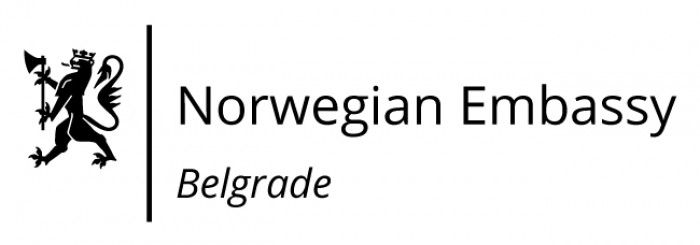The project "Strengthening gender equality in Serbia" is implemented by the Ana and Vlade Divac Foundation and The Center for Democracy Foundation and funded by Balkan Trust for Democracy and the Royal Norwegian Embassy in Belgrade.
The position of women in Serbia
According to the European Commission Progress Report for 2019, the largest number of complaints to the Commissioner for the Protection of Equality in Serbia relates to gender discrimination and those related to discrimination in the field of labor and employment and in the second place in terms of the number of complaints. From 2014 until 2018, complaints were mostly submitted by women (57.3%).
The reasons why women most often quote gender as the basis for discrimination in employment and at work are: placement to lower job positions, termination of employment contracts after returning from maternity leave, or absence from work due to childcare as well as their age.
PROJECT OBJECTIVES:
- Raising awareness and knowledge of Chapter 23 (Judiciary and Fundamental Rights) with a special focus on women's rights and discrimination against women when it comes to labor and employment and the process of further alignment with the legal framework of the EU.
- Assistance to local governments to integrate gender perspectives into local employment policies
- Assistance to employers and presentation of affirmative measures related to employment and improvement of the position of women in the labor market in Serbia
The project is focused on three regions in Serbia (Zlatibor, Pčinja and Bačka) with 9 selected municipalities: Užice, Arilje, Požega, Vranje, Vladičin Han, Surdulica, Sremski Karlovci, Bačka Palanka, Bečej.
The first work package focuses on advocacy activities in selected municipalities and at the national level, and begins with an analysis of the local legal and policy framework.
1. A comparative analysis of local action plans for employment and gender equality will be conducted in 9 selected municipalities from three districts.
2. Technical support will be offered to all municipalities to address the LAPs weaknesses following the recommendations.
3. A platform of local stakeholders will be organized through round tables and discussions on gender discrimination in terms of employment and labor rights.
4. A report on monitoring the implementation of EU strategic documents will be prepared at the national level.
The second work package focuses on building the capacity of the civil sector, local governments and the media to recognize and combat discrimination of women considering employment and labor law through two types of training:
1. Training on gender integration in local action plans for at least 45 representatives of local government and 15 representatives of the civil sector.
2. Training for at least 30 local media representatives and 15 civil society representatives.
The third work package focuses on raising the awareness of employers and citizens about women's rights and discrimination against women.
1. Local and national info sessions will be organized for 240 representatives of companies and Chambers of commerce.
2. Traditional and social media campaigns.
3. Involvement of local media.
4. Local street actions.
The final conference on gender equality will gather at least 100 participants in Belgrade.



